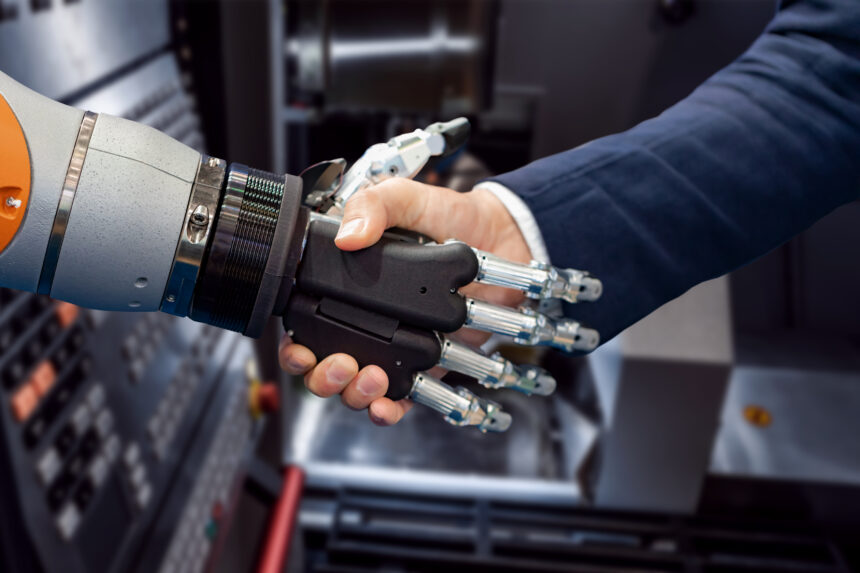The Impact of Artificial Intelligence on the Labor Market
Artificial Intelligence (AI) is no longer a futuristic concept; it is a present-day reality that is reshaping industries and redefining professional roles. As AI technologies continue to evolve, their impact on the labor market is becoming increasingly profound. This article explores how AI is transforming job landscapes, the potential benefits and challenges it presents, and what the future may hold for workers across various sectors.
Understanding AI’s Role in the Workforce
AI encompasses a range of technologies, including machine learning, natural language processing, and robotics, which can perform tasks traditionally carried out by humans. The integration of AI into the workforce is driven by several factors:
- Efficiency and Productivity: AI systems can analyze vast amounts of data quickly, leading to faster decision-making and increased productivity.
- Cost Reduction: Automating routine tasks can significantly reduce operational costs for businesses.
- Innovation: AI enables the development of new products and services, creating new markets and opportunities.
Job Displacement vs. Job Creation
One of the most contentious issues surrounding AI is its potential to displace jobs. According to a report by McKinsey Global Institute, up to 800 million jobs could be lost globally by 2030 due to automation. However, it is essential to recognize that AI also has the potential to create new jobs. The World Economic Forum predicts that while 85 million jobs may be displaced, 97 million new roles could emerge that are more suited to the new division of labor between humans and machines.
Radical Transformation of Professional Roles
As AI continues to permeate various sectors, the nature of many professional roles is undergoing radical transformation. Here are some key areas where this change is evident:
- Healthcare: AI is revolutionizing diagnostics and patient care. For instance, IBM’s Watson can analyze medical literature and patient data to assist doctors in making informed decisions, thereby enhancing the role of healthcare professionals rather than replacing them.
- Finance: AI algorithms are increasingly used for fraud detection and risk assessment. Financial analysts are now required to interpret AI-generated insights, shifting their focus from data collection to strategic decision-making.
- Manufacturing: Robotics and AI are streamlining production processes. While some manual jobs may be lost, there is a growing demand for skilled workers who can manage and maintain these advanced systems.
The Skills Gap: Preparing for the Future
As AI transforms job roles, there is a pressing need for workers to adapt to new skill requirements. The skills that will be in high demand include:
- Technical Skills: Proficiency in AI and data analytics will be crucial for many roles.
- Soft Skills: Skills such as creativity, emotional intelligence, and critical thinking will become increasingly valuable as they complement AI capabilities.
- Continuous Learning: The ability to learn and adapt will be essential in a rapidly changing job market.
Educational institutions and businesses must collaborate to provide training programs that equip workers with these necessary skills. Initiatives like coding boot camps and online courses are already gaining traction, but more comprehensive strategies are needed to address the skills gap effectively.
Case Studies: Companies Leading the Way
Several companies are at the forefront of integrating AI into their operations while also focusing on workforce development:
- Amazon: The company uses AI for inventory management and logistics, but it also invests in training programs for employees to transition into tech roles.
- Siemens: Siemens has implemented AI in manufacturing while simultaneously launching initiatives to upskill its workforce in digital technologies.
- Google: Google offers various resources and training programs to help employees adapt to AI-driven changes in their roles.
Conclusion: Embracing Change for a Better Future
The impact of artificial intelligence on the labor market is profound and multifaceted. While the potential for job displacement is significant, the opportunities for job creation and transformation are equally compelling. As AI continues to evolve, workers must embrace change and adapt to new roles that leverage their uniquely human skills. By investing in education and training, both individuals and organizations can navigate this transition successfully, ensuring that the future of work is not only about technology but also about human ingenuity and collaboration.
